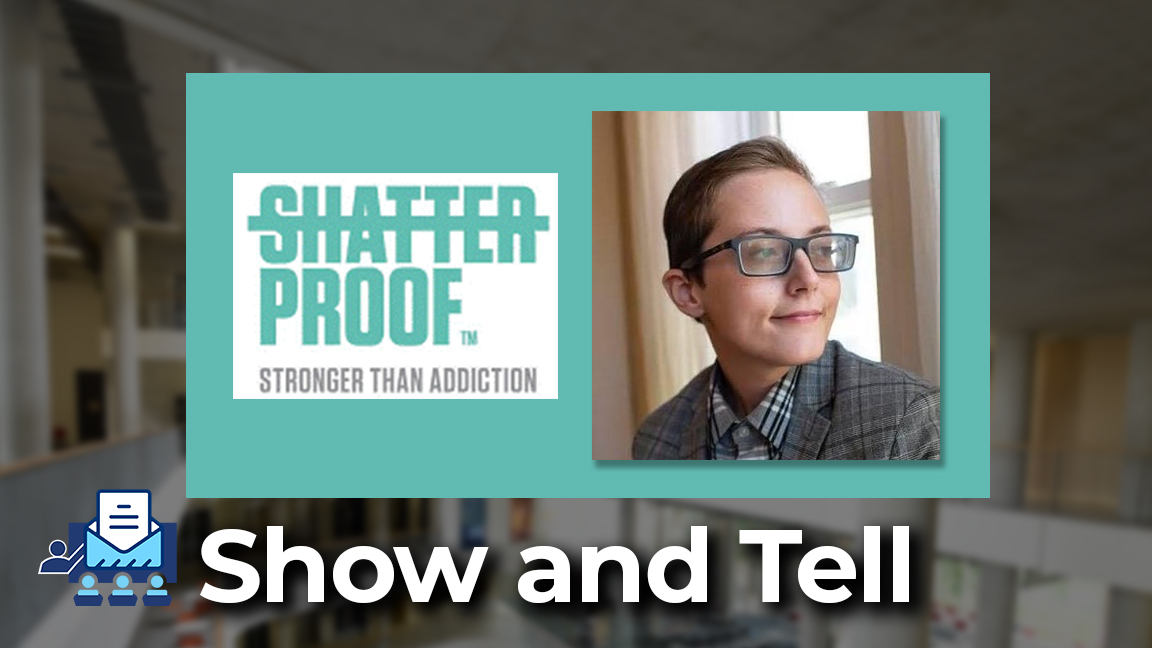
Hello! My name is Eri Solomon from Jamaica Plain, MA. I am a community organizing professional working to advance equitable economic justice policies and initiatives in the state of Massachusetts. I am sharing my story with you today because I am also a person in long-term recovery from a substance use disorder, as well as the child of a parent grappling with active addiction. Consequently, from my father’s fear of openly discussing his crack cocaine use with his healthcare providers as he ages to disparaging comments spoken directly to me in the clinic about people with substance use disorders, stigma in our healthcare system is intimately personal, intergenerational, and alive for me.
I present my story as someone diagnosed with both a substance use disorder and a rare, connective tissue condition – hypermobile Ehlers Danlos Syndrome or “hEDS”. This perspective is meaningful because, while mine might be a rare disease, the experience of facing illness and injury is universal to all of us, including those of us with substance use disorders: both for reasons related to our addiction and for reasons entirely separate. Improving patient experiences for people with substance use disorders and our families must therefore systematically encompass all of these healthcare encounters, from primary care to pulmonology to psychiatry. People with substance use disorders deserve comprehensive, compassionate, and standard of care medical treatment throughout our lifespan, without prejudice, discrimination, or shame.
Unfortunately, we remain far from actualizing this equitable vision, as stigma still occupies a deeply rooted and systemic presence in healthcare. Because of this, I carry with me a profound fear that I will be denied standard of care medical treatment because of provider stigma. I can imagine entering an emergency department in severe danger from complications of my Ehlers Danlos Syndrome and being sent home without assessment or treatment on accusations of drug seeking and hypochondria. I can imagine being denied effective pain management while recovering from a procedure, abandoned in debilitating pain because a provider is unwilling or unprepared to offer necessary opioid treatment to someone with an opioid use disorder. I can imagine providers dismissing or doubting the validity of my recovery because of my use of Medication for Addiction Treatment (MAT) to support that recovery. And I can imagine these nightmares because they are not hypotheticals for those of us who are facing addiction. Rather, they reflect our lived experiences: collectively, our stories comprising patterns of symptom dismissal, treatment denial, and uncontrolled pain.
Ultimately, substance use disorders can affect anyone and, consequently, they do impact every area of medicine and every aspect of the healthcare system. I meet regularly with eleven specialists, from neurology to cardiology to primary care. Together, they provide the comprehensive care that makes my healthy, active, and meaningful life possible. And this demonstrates that any physician could find themselves treating patients who happen to be experiencing addiction and those patients deserve to receive nondiscriminatory, compassionate, and standard of care medical treatment from every single provider they receive care from. I know that when I have faced stigma from any one of my treating professionals, my wellbeing, my health, and even my life has been inevitably imperiled because of it. For example, it took six years from the appointment in which I began searching for answers to a lifetime of debilitating symptoms before providers accurately diagnosed and offered treatment for my hypermobile Ehlers Danlos Syndrome, even as I awoke each morning in devastating unexplained and unaddressed pain. While this was partially because hEDS is a rare syndrome unfamiliar to many physicians, addiction and mental health stigma absolutely fueled the dismissive attitudes, remarks, and decisions I faced from providers. I am fortunate to now have excellent care, but those years without proper intervention left me with preventable and disabling physical harm that is now irreversible.
Consequently, the most impactful and concrete action step each of you can take to improve both experiences and outcomes for patients with substance use disorders is simply to insist that we receive the same standard of care as those without them, a dignity regularly denied to us because of stigma in healthcare. The standard of care should be the standard of care for everyone: we must accept nothing less.
Moving forward, while actualizing this ideal will require a multi-pronged approach that addresses stigma on the structural, cultural, and individual level, from within the framework of your own positions and initiatives each of you now have the powerful opportunity and responsibility to act as advocates amongst your peers for patients with substance use disorders; demonstrating what comprehensive, compassionate, and standard of care medical treatment for individuals with addiction ought to look like, with a commitment to dignity at its foundation. I invite you today to commit to engaging in this necessary and impactful education and advocacy work.
Together, I know that we will be able to build a healthcare system where everyone, including individuals with substance use disorders, has access to the comprehensive, compassionate, and standard of care medical treatment we all deserve.
Eri Solomon is one of the many Ambassadors sharing their story for Shatterproof.org. Ambassadors are available to speak to your practice or organization. Contact Lnouvel@shatterproof.org for more information.